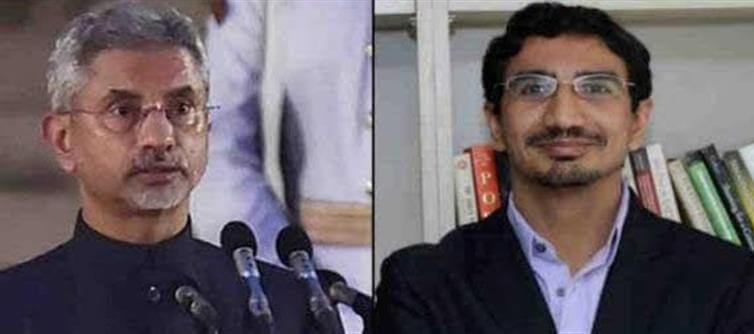
On the right, a photo of his son, dressed in a suit and standing confidently in front of a bookshelf, represents a life seemingly rooted outside India. Kanojia’s accompanying text highlights a pointed critique: Jaishankar’s son is a U.S. citizen, and the journalist sarcastically awaits the day he relinquishes this citizenship to serve india, suggesting a disconnect between the minister’s public advocacy for patriotism and his family’s choices.
The tweet taps into a broader narrative questioning the authenticity of nationalist rhetoric among India’s leaders. Kanojia’s assertion that Jaishankar’s son “could not tolerate india and chose U.S. citizenship” implies a personal rejection of the homeland, contrasting sharply with the minister’s diplomatic role, which often involves promoting India’s global image. This juxtaposition has struck a chord, as evidenced by the flurry of responses on X, where users like @jten786 and @Mo_disaster_2 extend the critique to other political families, noting a trend of children from influential households settling abroad.
The discussion sparked by Kanojia’s post delves into complex issues of citizenship, identity, and political accountability. India’s Citizenship Act, which does not allow dual citizenship, forces individuals like Jaishankar’s son to choose between nationalities, a point raised by some defenders who argue that such decisions are often pragmatic rather than a reflection of disloyalty. However, the tweet’s sarcastic tone and the ensuing debate—ranging from calls for consistency among leaders to counter-accusations about other politicians like rahul Gandhi—highlight a growing public demand for alignment between personal actions and public stances.




 click and follow Indiaherald WhatsApp channel
click and follow Indiaherald WhatsApp channel